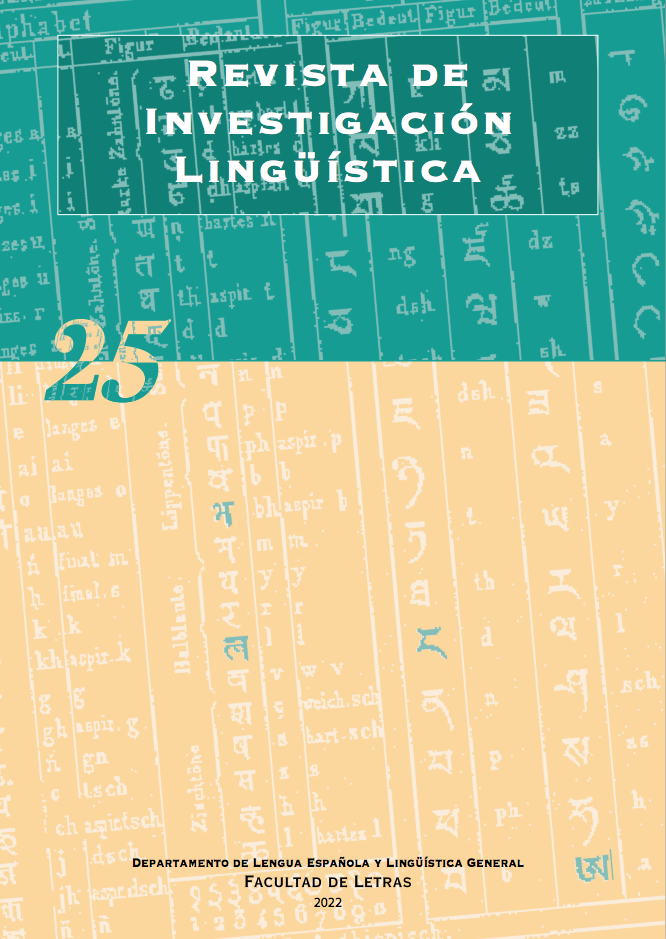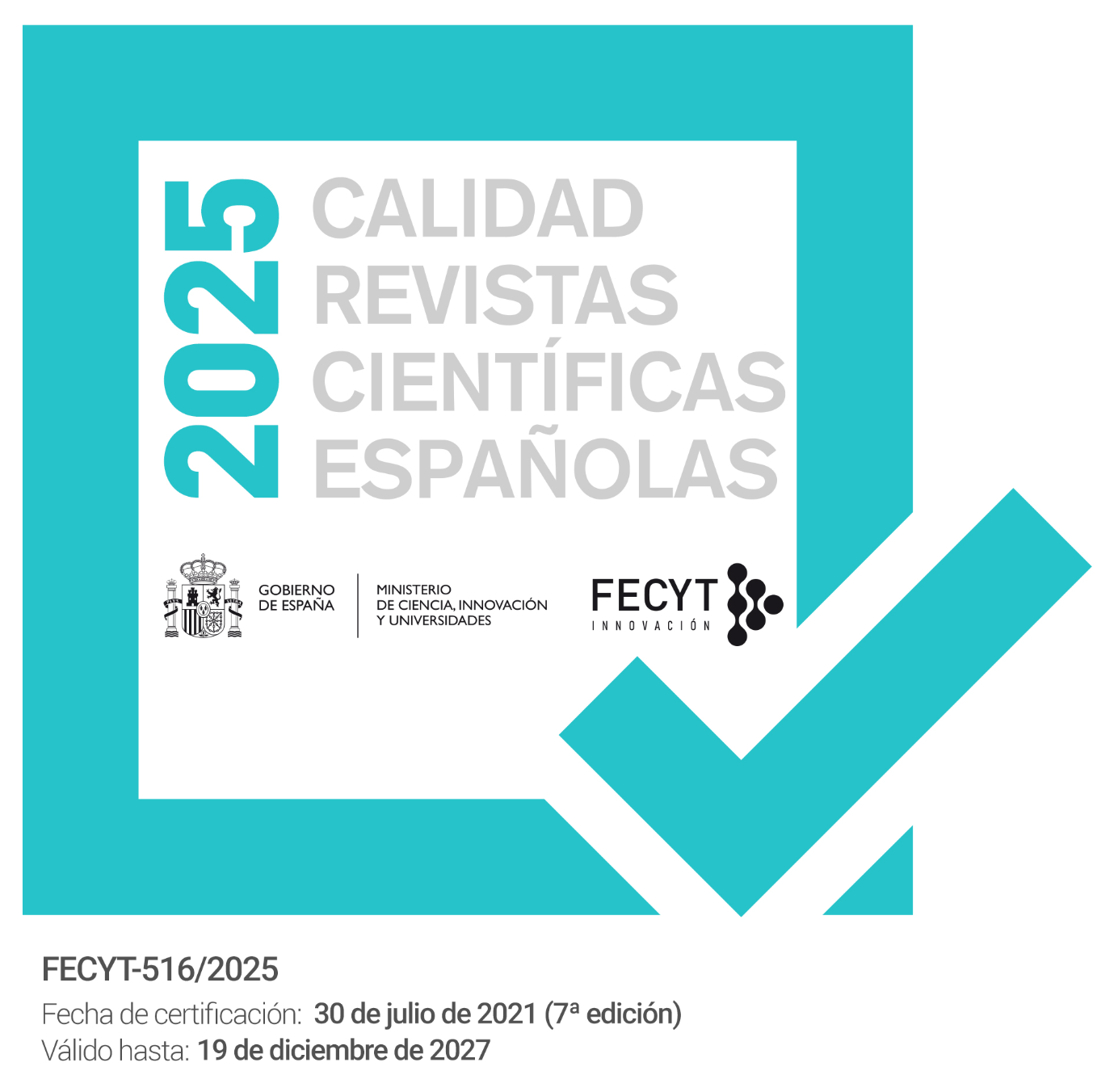Changes, inclusion and proposals regarding disability terminology
Abstract
For years, people with disabilities have felt hurt by the terms used to refer to them. The aim of this research is to find out whether there has been a change in the vocabulary employed and to collect information about the words with which people from this group feel identified. To this end, the experiences, preferences and proposals of 400 people with disabilities living in Spain and from two different periods —one of them, the present— were collected by means of a questionnaire consisting of open and closed questions. The results show that the treatment has improved since the year 2000, but they also reveal new inappropriate terms and a common feeling that there is still a long way to go.Downloads
-
Abstract916
-
PDF (Español (España))1261
References
AGUADO DÍAZ, Antonio-León, María Ángeles FLÓREZ GARCÍA y María Ángeles ALCEDO RODRÍGUEZ (2003): «Un programa de cambio de actitudes hacia personas con discapacidad en entorno escolar», Análisis y Modificación de Conducta, 29, n.º 127, pp. 673-704. En línea: <http://hdl.handle.net/11162/21546> [09/05/2022].
AGUADO DÍAZ, Antonio-León, María Ángeles FLÓREZ GARCÍA y María Ángeles ALCEDO RODRÍGUEZ (2004): «Programas de cambio de actitudes ante la discapacidad», Psicothema, 16 (4), pp. 667-673. En línea: <https://www.psicothema.com/pdf/3048.pdf> [09/05/2022].
ALMAZÁN MORENO, Lorenzo (2003): «Los cambios actitudinales hacia la integración escolar desde la perspectiva de los alumnos», Revista Fuentes, 5. En línea: <https://revistascientificas.us.es/index.php/fuentes/article/view/2417> [09/05/2022].
ANDAYA HERNÁNDEZ, Yurixhi (2017): Protocolo para la atención de personas con discapacidad, México, Universidad Virtual del Estado de Guanajuato. En línea: <https://uveg.edu.mx/images/documentos/5_PROTOCOLO%20PARA%20LA%20ATENCION%20DE%20PERSONAS%20CON%20DISCAPACIDAD.pdf> [09/05/2022].
ARANGO, David (2016): «Con su lenguaje también puede discriminar. Diccionario para evitarlo», El Tiempo [diario de Colombia]. En línea: <https://www.eltiempo.com/archivo/documento/CMS-16607679> [09/05/2022].
AYUNTAMIENTO DE VITORIA-GASTEIZ (2019): Proceso de trabajo participado: terminología referida a las personas en situación de discapacidad, Álava, Ayuntamiento de Vitoria-Gasteiz. En línea: <https://www.vitoria-gasteiz.org/docs/wb021/contenidosEstaticos/adjuntos/es/37/11/83711.pdf> [09/05/2022].
BELDA GARCÍA, Luis Miguel, Juan Emilio MAÍLLO BELDA y José María PRIETO AMPUDIA (2007): Periodismo social. El compromiso de la información, 4.ª ed., Madrid, Servimedia. En línea: <https://www.servimedia.es/sites/default/files/documentos/librodeestilo_servimedia.pdf> [09/05/2022].
BLAS ARROYO, José Luis (1999): «Las actitudes hacia la variación intradialectal en la sociolingüística hispánica», Estudios filológicos, 34, pp. 47-72. DOI: http://dx.doi.org/10.4067/S0071-17131999003400005.
CESTERO, Ana M. y Florentino PAREDES (2018): «Creencias y actitudes de los jóvenes universitarios del centro-norte de España hacia las variedades cultas del español», Boletín de Filología, LIII (2), pp. 45-86. DOI: http://dx.doi.org/10.4067/S0718-93032018000200045.
CONFEDERACIÓN ESPAÑOLA DE FAMILIAS DE PERSONAS SORDAS (s. f.): «¿Qué es la sordera?». En línea: <http://www.fiapas.es/que-es-la-sordera> [09/05/2022].
CONFEDERACIÓN ESPAÑOLA DE PERSONAS CON DISCAPACIDAD FÍSICA Y ORGÁNICA (s. f.): Discapacidad Física y Orgánica. En línea: <https://cocemfe.es/informate/discapacidad-fisica-organica/> [09/05/2022].
CONFEDERACIÓN ESPAÑOLA DE PERSONAS CON DISCAPACIDAD FÍSICA Y ORGÁNICA (2018): Lenguaje inclusivo. Pautas para el uso de un lenguaje correcto, respetuoso y consensuado para referirse a las personas con discapacidad física y orgánica y comunicar de manera no sexista. En línea: https://www.cocemfe.es/wp- [09/05/2022].
CONSEJO NACIONAL PARA LA ATENCIÓN DE LAS PERSONAS CON DISCAPACIDAD (2018): Terminología sobre discapacidad y formatos de información accesible. En línea: <https://conadi.gob.gt/web/wp-content/uploads/2018/08/terminologia-y-formatos-accesibles.pdf> [07/07/2022].
COOPER, Robert L. y Joshua A. FISHMAN (1974): «A study of language attitudes», Bilingual Review/La Revista Bilingüe, 4 (1/2), pp. 7-34.
DEA = Seco, Manuel, Olimpia ANDRÉS y Gabino RAMOS (2011): Diccionario del español actual, 2.ª edición actualizada, Madrid, Aguilar Lexicografía, 2 vols.
DRAE 2014 = REAL ACADEMIA ESPAÑOLA (2014): Diccionario de la lengua española, 23.ª edición, Madrid, Espasa. En línea: <https://dle.rae.es/?w=diccionario> [09/05/2022].
EGEA GARCÍA, Carlos y Alicia SARABIA SÁNCHEZ (2001): «Clasificaciones de la OMS sobre discapacidad», Boletín del Real Patronato sobre Discapacidad, 50, pp. 15-30. En línea: <https://www.siis.net/documentos/boletin%20RP/BRPD50.pdf> [09/05/2022].
EXPANSIÓN (2011): «Diminutivos y formas ‘cariñosas’ para hablar de discapacidad discriminan». En línea: <https://expansion.mx/salud/2011/12/20/diminutivos-y-formas-carinosas-para-hablar-de-discapacidad-discriminan> [09/05/2022].
FLÓREZ GARCÍA, M.ª Ángeles, Antonio León AGUADO DÍAZ y M.ª Ángeles ALCEDO RODRÍGEZ (2009): «Revisión y análisis de los programas de cambio de actitudes hacia personas con discapacidad», Anuario de Psicología Clínica y de la Salud, 5, pp. 85-98. En línea: <https://hdl.handle.net/11441/132756> [09/05/2022].
HUGHES, Carolyn, Susan R. COPELAND, Carol GUTH, Lori L. RUNG, Bogseon HWANG, Gretchen KLEEB y Mark STRONG (2001): «General Education Students’ Perspectives on Their Involvement in a High School Peer Buddy Program», Education and Training in Mental Retardation and Developmental Disabilities, 36 (4), pp. 343-356.
KRAHÉ, Barbara y Colette ALTWASSER (2006): «Changing Negative Attitudes towards Persons with Physical Disabilities: An Experimental Intervention», Journal of Community and Applied Social Psychology, 16, 1, pp. 59-69. DOI: https://doi.org/10.1002/casp.849.
MANETTI, Mara, Barry H. SCHNEIDER y Gary SIPERSTEIN (2001): «Social Acceptance of Children with Mental Retardation: Testing the Contact Hypothesis with an Italian Sample», International Journal of Behavioral Development, 25 (3), pp. 279-286. DOI: https://doi.org/10.1080/01650250042000249.
NAVAS, Leandro, Germán TORREGROSA y Antonio MULA (2004): «Algunas variables predictoras de las actitudes del alumnado ante la integración escolar», Revista de Psicología Social, 19 (2), pp. 159-171. DOI: https://doi.org/10.1174/021347404773820963.
NIKOLARAIZI, Magda, Poonam KUMAR, Paddy FAVAZZA, Georgios SIDERIDIS, Dafni KOULOUSIOU y Ann RIALL (2005): «A cross-cultural examination of typically developing children’s attitudes toward individuals with special needs», International Journal of Disability, Development and Education, 52 (2), pp. 101-119. DOI: https://doi.org/10.1080/10349120500086348.
ORGANIZACIÓN MUNDIAL DE LA SALUD (2001): Clasificación Internacional del Funcionamiento, de la Discapacidad y de la Salud (CIF), Madrid, Ministerio de Trabajo y Asuntos Sociales / Secretaría General de Asuntos Sociales / Instituto de Migraciones y Servicios Sociales (IMSERSO).
ORGANIZACIÓN MUNDIAL DE LA SALUD (s. f.): Adolescent health. En línea: https://www.who.int/southeastasia/health-topics/adolescent-health [09-05-2022].
ORGANIZACIÓN NACIONAL DE CIEGOS ESPAÑOLES (s. f. a): «Ceguera y deficiencia visual». En línea: <https://www.once.es/dejanos-ayudarte/la-discapacidad-visual/concepto-de-ceguera-y-deficiencia-visual> [09/05/2022].
ORGANIZACIÓN NACIONAL DE CIEGOS ESPAÑOLES (s. f. b): «Ceguera y deficiencia visual». En línea: <https://www.once.es/dejanos-ayudarte/la-discapacidad-visual/concepto-de-ceguera-y-deficiencia-visual> [09-05-2022].
PIERCY, Maureen, Keri WILTON y Michael TOWNSEND (2002): «Promoting the Social Acceptance of Young Children with Moderate-Severe Intellectual Disabilities Using Cooperative-Learning Techniques», American Journal on Mental Retardation, 107 (5), pp. 352-360. DOI: https://doi.org/10.1352/0895-8017(2002)107<0352:PTSAOY>2.0.CO;2.
RED DE COMUNICACIÓN DE PLENA INCLUSIÓN (2017): Posicionamiento de Plena inclusión sobre terminología. En línea: <https://www.plenainclusion.org/sites/default/files/posicionamientoterminologia-def-23-06-17.pdf> [09/05/2022].
SÁNCHEZ CABALLERO, Matías (2016): «Términos adecuados para referirnos a personas con discapacidad», Asepau. Revista de los profesionales de la accesibilidad universal, 1, pp. 41-46. En línea: <http://www.asepau.org/sites/default/files/pdf/publications/revista_oficial_asepau_numero_1.pdf> [09/05/2022].
SÁNCHEZ CABALLERO, Matías (2020): «Términos adecuados para referirnos a personas con discapacidad», en Web Mati. En línea: <http://www.webmati.es/index.php?option=com_content&view=article&id=46:terminos-adecuados-para-referirnos-a-personas-con-disca-pacidad&catid=12&%20Itemid=163> [09/05/2022].
SCHALOCK, Robert L. (2009): «La nueva definición de discapacidad intelectual, apoyos individuales y resultados personales», Siglo Cero. Revista Española sobre Discapacidad Intelectual, 40 (1), n.º 229, pp. 22-39.
SECO, Manuel (1998): Diccionario de dudas y dificultades de la lengua española, 10.ª edición, Madrid, Espasa.
SEMAR MÉXICO (s.f.): Glosario de términos sobre discapacidad. En línea: <http://www.semar.gob.mx/derechos_humanos/glosario_terminos_discapacidad.pdf> [09/05/2022].
SENADIS (2015): Recomendaciones para el uso del Lenguaje en Discapacidad. Conociendo la terminología apropiada para referirse a las Personas en Situación de Discapacidad. En línea: <https://www.google.com/search?q=senadis+recomendciones+discpacidad&oq=senadis+recomendciones+discpacidad&aqs=chrome..69i57j33i10i160l3.3636j0j7&sourceid=chrome&ie=UTF-8#> [09/05/2022].
SHEVLIN, Michael y Astrid Mona O’MOORE (2000): «Fostering Positive Attitudes: Reactions of Mainstream Pupils to Contact with Their Counterparts who Have Severe/Profound Intellectual Disabilities», European Journal of Special Needs Education, 15 (2), pp. 206-217. DOI: https://doi.org/10.1080/088562500361628.
ÜSTÜN, T. Bedirhan, Somnath CHATTERJI, Jerome E. BICKENBACH, Robert T. TROTTER II, Robin ROOM, Jurgen REHM y Shekhar SAXENA (eds.) (2001): Disability and Culture: Universalism and Diversity, Washington, Hogrefe & Huber Publishers.
VERDUGO ALONSO, Miguel Ángel y Robert L. SCHALOCK (2010): «Últimos avances en el enfoque y concepción de las personas con discapacidad intelectual», Siglo Cero. Revista Española sobre Discapacidad Intelectual, 41 (4), n.º 236, pp. 7-21.
Copyright (c) 2022 Journal of Linguistic Research

This work is licensed under a Creative Commons Attribution-NonCommercial-NoDerivatives 4.0 International License.
The works published in this magazine are subject to the following terms:
1. The Publications Service of the University of Murcia (the publisher) preserves the economic rights (copyright) of the published works, and favors and allows the reuse of same under the license of use indicated in point 2.
2. The papers are published in the electronic edition of the magazine under a Creative Commons Attribution-NonCommercial-NoDerivative 3.0 Spain license (legal text). Papers may be copied, used, disseminated, transmitted and publicly exhibited if the following requirements are met: i) The authorship and the original source of its publication (magazine, editorial and URL of the work) must be cited; ii) The works cannot be used for commercial purposes; iii) The existence and specifications of this user license must be explicitly mentioned.
3. Self-archiving conditions. Authors can electronically disseminate pre-print versions (version before being evaluated) and / or post-print versions (version evaluated and accepted for publication). This makes possible its circulation and diffusion earlier and with it a possible increase in its citation and reach among the academic community. RoMEO color: green.










